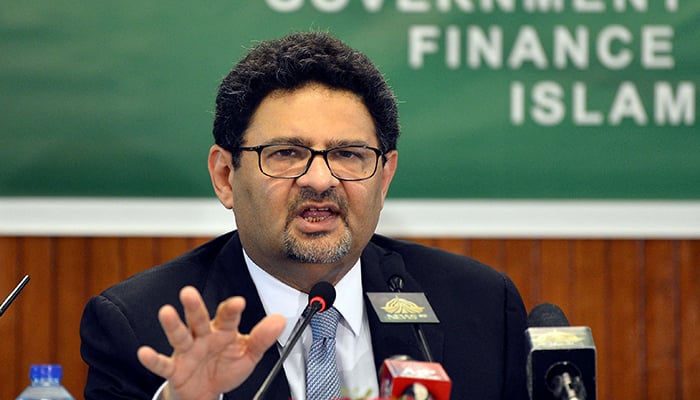- Ishaq Dar has “sabotaged IMF agreement”, says ex-finance czar.
- Miftah Ismail also claims IMF doesn’t trust Pakistan now.
- “If Pakistan defaults it will be a grave situation.”
As Pakistan continues to woo the International Monetary Fund (IMF) to secure the much-needed bailout from the global lender, former finance minister Miftah Ismail claimed that the Washington-based lender is “not interested” in giving money to the cash-strapped nation.
Pakistan is now the only South Asian country that’s yet to secure a bailout from the multilateral lender as Sri Lanka clinched financing this week and Bangladesh pushes on with carrying out IMF-mandated reforms.
Pakistan has taken tough measures including increasing taxes and energy prices, and allowing its currency to weaken to restart a $6.5 billion IMF loan package. The funds will offer some relief to a nation still reeling from a dollar shortage that has raised the probability of the economy slipping into a recession ahead of elections this year.
Pakistan Muslim League-Nawaz (PML-N) leader Miftah, while speaking during a session titled ‘Pakistan in the midst of crisis’ organised by a private university in Karachi, said that when he was heading the Ministry of Finance, he spoke to the IMF officials and assured them that Pakistan would not make false statements or violate the agreement; however, when Ishar Dar was sworn in “he sabotaged the agreement”.
He recalled that Pakistan has three times made sovereign commitments and has then gone back on them.
“Now the IMF is not interested in giving money to Pakistan,” he said, emphasising that the Washington-based lender doesn’t trust the government in Islamabad.
‘Petrol subsidy formula not effective’
Regarding the petrol relief subsidy announced by the government on Sunday, Miftah said that he believes this formula would not be effective.
“We provide subsidies on petrol by taking loans,” he said. Since the government announced the petroleum subsidy — which initially amounted to Rs50 per litre amount and was later increased to Rs100 per litre — several red flags were raised as analysts and economic experts have been criticising the move as it may jeopardise the ongoing struggle to convince the IMF board.
IMF’s resident representative for Pakistan Esther Perez Ruiz had also clarified that said the Washington-based lender wasn’t consulted on the government’s plan to raise fuel prices for wealthier motorists to finance a subsidy for lower-income people.
“Fund staff are seeking greater details on the scheme in terms of its operation, cost, targeting, protections against fraud and abuse, and offsetting measures, and will carefully discuss these elements with the authorities,” she said.
This is not the first time petrol price subsidies have been a sticking point for the IMF. The previous government led by former premier Imran Khan had given out petrol subsidies, which stalled the IMF programme last year.
Warning of the risks, Miftah mentioned that if Pakistan defaults it will be a grave situation for the country as people belonging to the rich segment will bear the brunt but the poor people won’t be able to make ends meet.

 Latest News1 day ago
Latest News1 day ago
 Business2 days ago
Business2 days ago
 Business2 days ago
Business2 days ago
 Latest News2 days ago
Latest News2 days ago
 Latest News1 day ago
Latest News1 day ago
 Latest News2 days ago
Latest News2 days ago
 Latest News2 days ago
Latest News2 days ago
 Latest News1 day ago
Latest News1 day ago






















